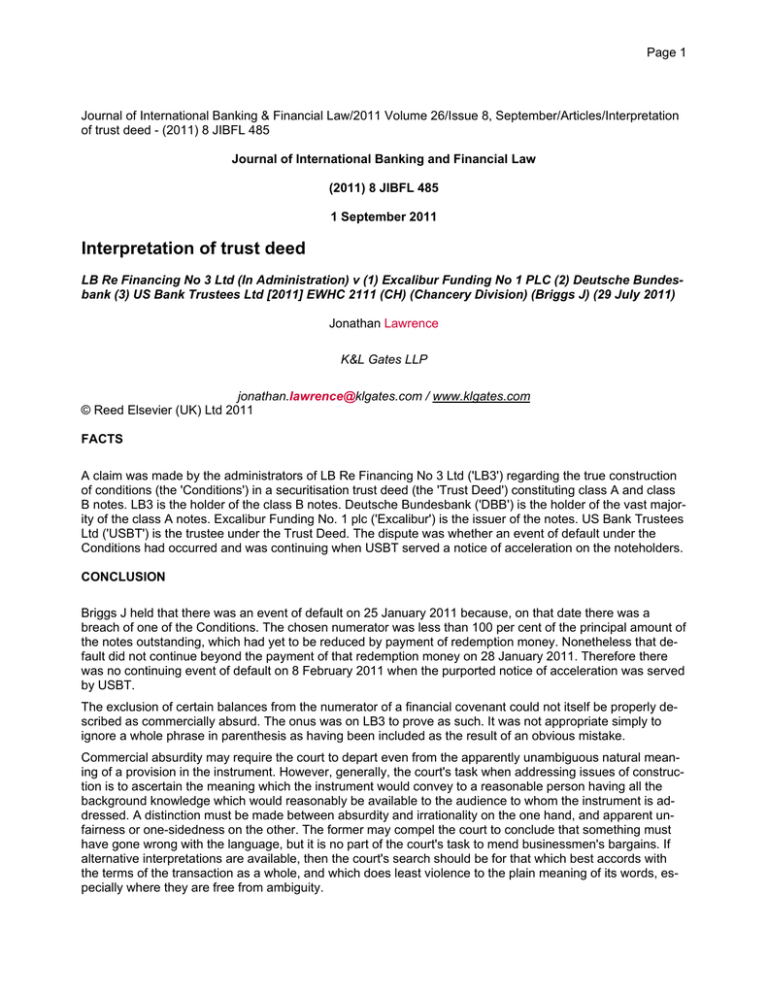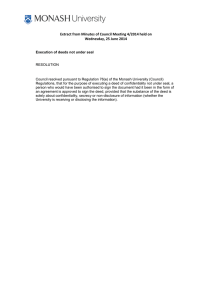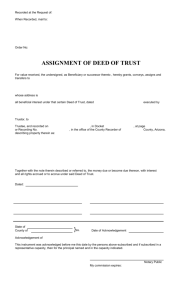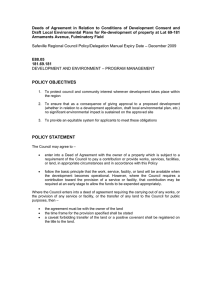Page 1
advertisement

Page 1
Journal of International Banking & Financial Law/2011 Volume 26/Issue 8, September/Articles/Interpretation
of trust deed - (2011) 8 JIBFL 485
Journal of International Banking and Financial Law
(2011) 8 JIBFL 485
1 September 2011
Interpretation of trust deed
LB Re Financing No 3 Ltd (In Administration) v (1) Excalibur Funding No 1 PLC (2) Deutsche Bundesbank (3) US Bank Trustees Ltd [2011] EWHC 2111 (CH) (Chancery Division) (Briggs J) (29 July 2011)
Jonathan Lawrence
K&L Gates LLP
jonathan.lawrence@klgates.com / www.klgates.com
© Reed Elsevier (UK) Ltd 2011
FACTS
A claim was made by the administrators of LB Re Financing No 3 Ltd ('LB3') regarding the true construction
of conditions (the 'Conditions') in a securitisation trust deed (the 'Trust Deed') constituting class A and class
B notes. LB3 is the holder of the class B notes. Deutsche Bundesbank ('DBB') is the holder of the vast majority of the class A notes. Excalibur Funding No. 1 plc ('Excalibur') is the issuer of the notes. US Bank Trustees
Ltd ('USBT') is the trustee under the Trust Deed. The dispute was whether an event of default under the
Conditions had occurred and was continuing when USBT served a notice of acceleration on the noteholders.
CONCLUSION
Briggs J held that there was an event of default on 25 January 2011 because, on that date there was a
breach of one of the Conditions. The chosen numerator was less than 100 per cent of the principal amount of
the notes outstanding, which had yet to be reduced by payment of redemption money. Nonetheless that default did not continue beyond the payment of that redemption money on 28 January 2011. Therefore there
was no continuing event of default on 8 February 2011 when the purported notice of acceleration was served
by USBT.
The exclusion of certain balances from the numerator of a financial covenant could not itself be properly described as commercially absurd. The onus was on LB3 to prove as such. It was not appropriate simply to
ignore a whole phrase in parenthesis as having been included as the result of an obvious mistake.
Commercial absurdity may require the court to depart even from the apparently unambiguous natural meaning of a provision in the instrument. However, generally, the court's task when addressing issues of construction is to ascertain the meaning which the instrument would convey to a reasonable person having all the
background knowledge which would reasonably be available to the audience to whom the instrument is addressed. A distinction must be made between absurdity and irrationality on the one hand, and apparent unfairness or one-sidedness on the other. The former may compel the court to conclude that something must
have gone wrong with the language, but it is no part of the court's task to mend businessmen's bargains. If
alternative interpretations are available, then the court's search should be for that which best accords with
the terms of the transaction as a whole, and which does least violence to the plain meaning of its words, especially where they are free from ambiguity.




